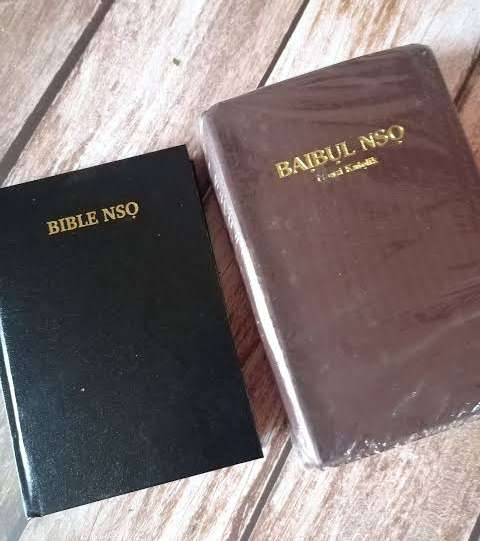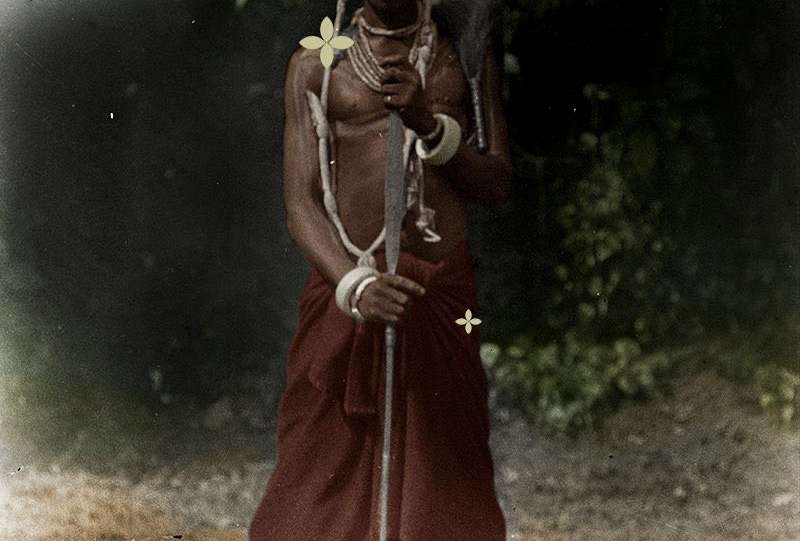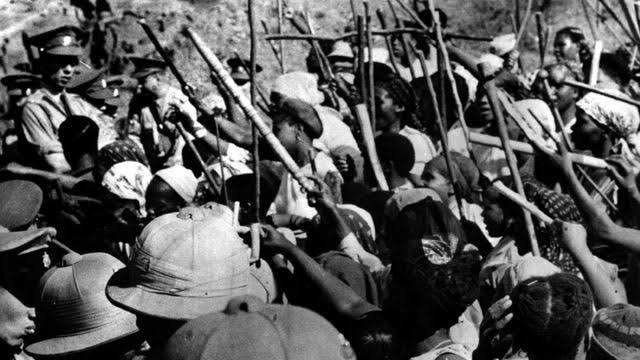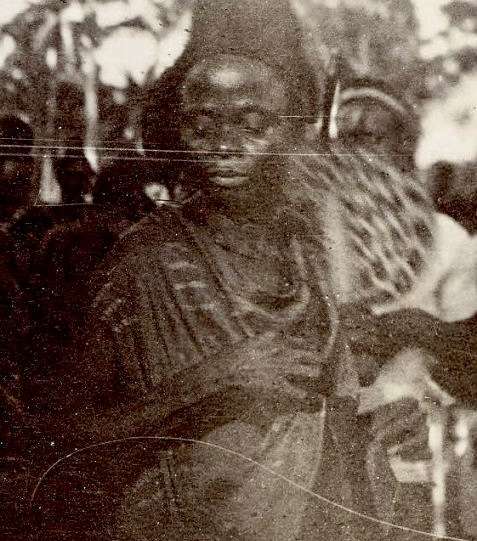This is the continuation of the story of Ubulu-Uku/Bini.
Following their victory over the Ogiugo, the Oba of Benin sought peace with Ubulu-Uku and agreed to the proposed terms. This decision was influenced by the knowledge that the Obi of Ubulu had pledged not to support the Ogiugo. The peace agreement included the exchange of gifts, with Benin offering valuable European goods and trade opportunities.
The Edos agreed not to engage in wars with west Igbo communities. Thus, for the entire 1800s, there was no Edo war which was waged in west Igbo land. The Edos had focused their attention on eastern Yoruba land.
Have Edo historians explored the reasons behind the lack of conflict between the Benin Kingdom and West Igbo communities throughout the 19th century?
Their attention was diverted to Yoruba land. This is strange considering that the nineteenth century was the century of massive economic growth of west Igbo land. The boom was hinged on the era of “legitimate trade” with largely British owned firms operating along the coast and various trading posts along the Niger. During the 19th century, palm oil replaced the slave trade as the dominant commodity traded between West Igbo communities and British companies. Genealogical studies in West Igbo land reveal a significant population increase during the 18th and 19th centuries.
The development of complex title societies and age grades, which reflects the expanding social structure, was proof of this growth. As noted by NW Thomas in 1913, the town of Ibusa alone had hundreds of Obi title holders, indicating a substantial population of around 40,000 people. This rapid growth underscores the dynamism and strength of the West Igbo region during this period. The West Igbo communities realized the power of unity in their resistance against foreign influence. This realization prompted the formation of the Ekumeku society, which played a significant role in resisting British colonialism in later centuries.
The Ekumeku Movement was a reaction to colonial intrusion in the nineteenth century (circa 1886) and lasted till 1911. The outcome of the Adesuwa War greatly influenced the mindset behind the resistance against British encroachment. The belief that the powerful Benin Kingdom could be compelled to seek peace suggested that the same might be achievable with the British. But as we all know, history has proven that this, tragically, did not happen. The victory over the Ogiugo greatly enhanced the Ubulu people’s reputation and power. Late 19th-century explorers acknowledged this and accounts like Isaac Spencer, who described the Obi of Ubulu-Uku, Nwajei, as a powerful monarch comparable to the Oba. Spencer also noted the town’s relative prosperity. The claim that Ubulu-Uku was “annihilated” by Benin is a widely believed claim often made by Edo historians. However, the town’s subsequent achievements in terms of wealth, power, and prestige within a relatively short period (130 years) challenges this assertion. While 130 years may seem like a significant amount of time from a modern point of view, it was a relatively short period for a town, supposedly destroyed by the Benin Empire, to achieve such remarkable development. The defeat inflicted by the Ubulu people forced the Edo to reframe their narrative of the events, leading to a distorted historical account that persists today, as exemplified in Lancelot Imasuen’s film. The descendants of Edo soldiers settled in Ubulu-Uku and other west Igbo communities. It is possible that towns such as Ugboba (originally on Obomkpa territory) and Ogodor (originally in Ezi and Ebu territory), both in Aniocha North, were founded by soldiers of Esan origin since the genealogy of the towns corresponds perfectly with the war.
Scattered across parts of West Igbo land, there are small lineages that trace their origins to the same period and claim either Benin or Esan ancestry. For example, in Igbodo, the Idumu-Uwolor lineage is believed to have been founded by an Esan warrior following the war. According to Ikem and Anene- Ubulu-Uku historians- a prominent Edo warrior sought refuge in the town after the Adesuwa War. As stated in the book: ““U MU-IJE; Their progenitor is Ijeh, who migrated from Benin. So, they are called Umu-Idu. Ije was a Benin warrior, who was born at Ugbowo. He was the grandson of Ohu-Oba and Oba of Benin. Ije was one of the Warriors who led Benin troops to invade Ubulu over Adesuwa’s execution in 1750. After the war Ije settled at Ubulu and Obi Olise gave him Amisha, one of his daughters, in marriage. The Ijes then went to settle in Akwu.” Based on the findings of Ikem and Anene in their work “The Sociology of Ubulu-Uku.”
Note: the name Ije referred to here was originally “Ige Ogbelaka,” which the Ubulu people mispronounced as “Ije,” instead of Ige.
In Ibusa, a division of the Edo army was defeated. The victorious Ibusa war chief, Ezeje, was subsequently installed as their monarch. However, because his reign was often influenced by his wife, he was eventually dethroned. Ezeje fled to Ejeme-Aniogor, where his descendants established the UMUADIAGHE village. The Ubulu people were scattered across various regions following the conflict. Many sought refuge in eastern towns like Ozubulu, Ubulu (Oru axis), and Ubulu-Isiuzor.
In Akumazi, according to traditional oral history, two veteran Ubulu warriors, Aghufa and Gogo, were invited by the Obi to settle. Their community is now known as Ekwuoma. Additionally, some Ubulu people settled in Onitsha and Onicha-Ugbo. While it’s uncertain whether all these migrations were directly caused by the war, it’s clear that the war had a significant impact on the Ubulu people’s dispersal. In any case, the bravery of the Ubulu people is celebrated in songs throughout Ubulu-Uku and neighboring towns, especially during festivals. Because songs carry significance in African communities where historical events and traditions are often unwritten, these songs serve as pieces of oral history, preserving the stories of their people.
The Ubulu-Uku War contributed to increased interactions among West Igbo communities in areas like trade and culture. Following this war, dependence on the Benin Kingdom declined, as noted by NW Thomas in 1913. Even in Ukwunzu, a town where the Benin Kingdom traditionally collected royalties, this practice had become less prevalent. This reduced reliance on Benin explains why the fall of the Benin Kingdom in 1897 had a limited impact on the West Igbo region, with Abavo being a notable exception. Unlike other neighboring groups like the Urhobo, Esan, Itsekiri, and Afenmai, the West Igbo communities continued to resist colonial power through prolonged warfare, known as the Ekumeku wars, which spanned over two decades. The absence of lineages claiming Benin origin in the West Igbo region after the significant influx of Edo soldiers is a notable observation. Unlike Esan and eastern Yoruba lands, which continued to receive Edo settlers until the late 19th century, the West Igbo region experienced a decline in Edo settlement following the overthrow of Benin’s imperial rule. As the West Igbo region grew and developed, internal conflicts and migrations became more prevalent. Towns like Obiaruku, founded in the 18th and 19th centuries, exemplify this trend. Obiaruku is a blend of various West Igbo towns, including Umuebu, Ezhiopkor, Ezhionum, as well as settlers from Aboh and eastern Igbo regions. This shift towards internal migration and development highlights the growing autonomy of the West Igbo communities and their ability to establish their own towns and lineages independent of Benin’s influence. Despite the defeat of the Edo army, the Oba’s prestige remained intact among the West Igbo societies. Akengbuda’s decision to seek peace demonstrated his dignity, and many continued to uphold customs associated with the Oba. The Ubulu people, in particular, maintained their connection to the Oba, providing medicine and divination services. Even after Oba Ovonramwen’s exile to Calabar, the Ubulu royal house offered their support by acting as a liaison between the exiled Oba and his subjects.
After the war brought new power dynamics in west Igbo land. Agbor became the power house of the Ika area while Ubulu-Uku was just as powerful. Aboh was at the zenith of its power. Sometime in the nineteenth century, Agbor and Egbudu-Aka fought series of wars and it was claimed that the Obi of Egbudu-Aka was buried alive with an Obi of Agbor, hence the saying Ndi Eze Egbu di bu Ndu Eze Agbor. One of the princes of Egbudu-Aka pleaded with Ubulu-Uku and of course this had attracted some sympathy and with the help of Ubulu, the Agbor forces were defeated and expelled back to Agbor and the daughter settlement of Ekuku-Agbor.
References:
- Wright, E. (2017). The Story of Ubulu Kingdom.
- Mordi, O., & Onwordi, N. F. (n.d.). Enuani cultural forum. Facebook




